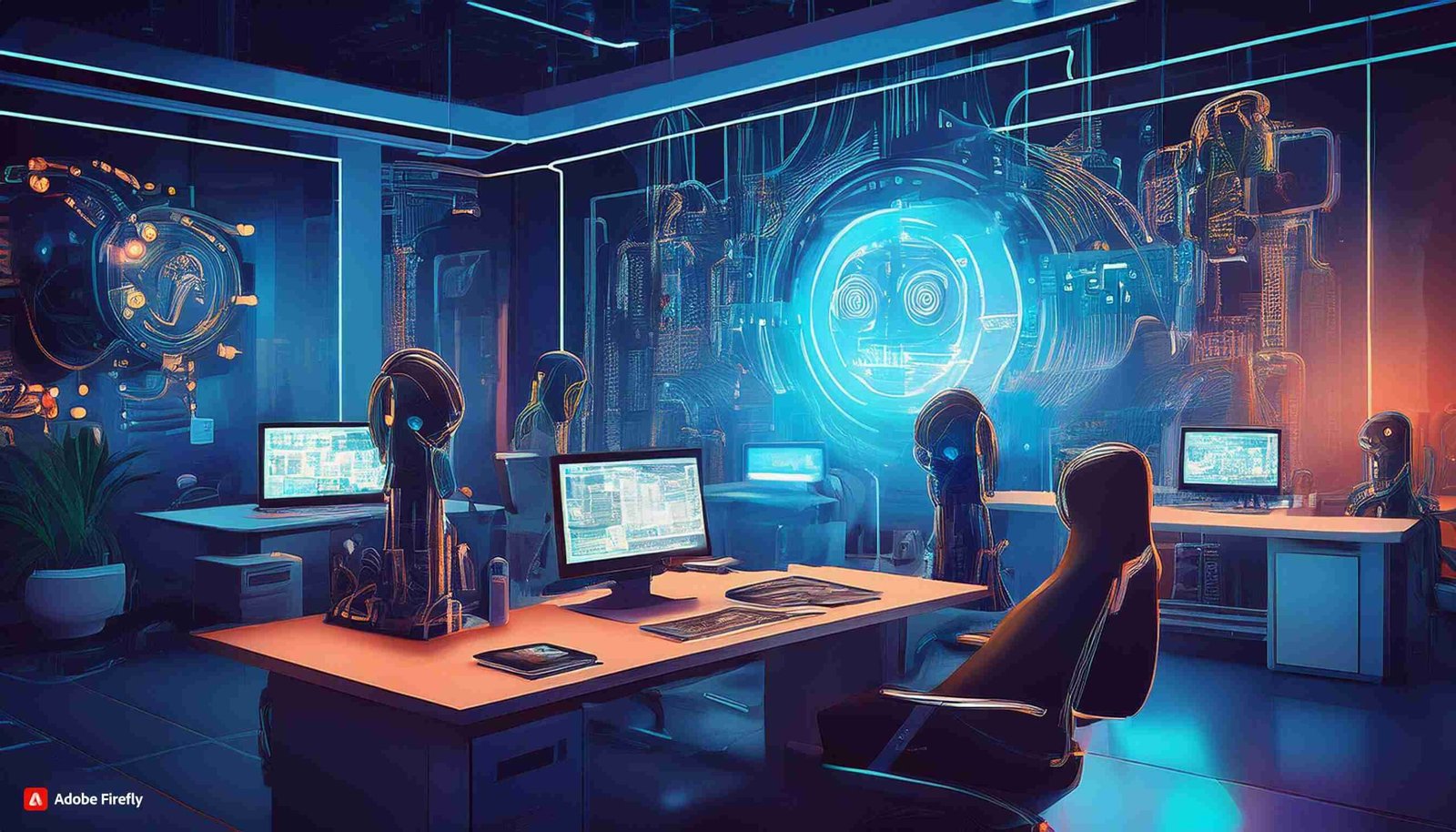In recent years, the rapid advancement of artificial intelligence (AI) has begun to reshape every facet of our lives, with the workplace being one of the most significantly impacted arenas. As organizations increasingly leverage AI technologies, they are transforming traditional work processes, enhancing productivity, and redefining roles. Employees may focus on more strategic and creative work by using AI to automate tedious processes and assist data-driven decision-making. Nonetheless, this shift brings important concerns regarding job displacement, ethical implications, and the future of human employment. In this exploration, we will delve into the various ways AI is revolutionizing the workplace, highlighting both the opportunities it creates and the challenges it presents for employees and employers alike.
The Rise of Artificial Intelligence in Business
The evolution of AI technologies has progressed significantly over the past few decades. Initially rooted in theoretical concepts, AI has transitioned into practical applications that impact daily business operations. According to a report from the McKinsey Global Institute, artificial intelligence is projected to add nearly $13 trillion to the global economy by 2030, underscoring its escalating significance in the business landscape. Technologies like machine learning, natural language processing, and robotics are at the forefront of this transformation, each bringing distinct advantages that improve workplace efficiency and effectiveness. For instance, machine learning algorithms enable enterprises to improve their capacity for making predictive decisions by processing vast amounts of data while continually learning from and improving their models.
Enhanced Productivity and Efficiency
The potential of AI to increase efficiency and productivity at work is one of its main effects. AI tools make work processes more efficient by optimizing workflows and automating tedious tasks that used to take up considerable time and resources. For example, Robotic Process Automation (RPA) is commonly used for administrative tasks, such as data entry and invoice processing, enabling employees to redirect their focus toward more strategic activities. Companies like UiPath have demonstrated how RPA can improve accuracy and decrease operational costs. As a consequence, the workforce is more productive and able to focus on higher-value jobs that call for imagination and analytical skills.
Transformations in Job Roles and Employment
As AI technology integrates into the workplace, it inevitably alters job roles and the skills required for these positions. While certain jobs, particularly those that involve routine and repetitive tasks, are at risk of automation—such as data entry and customer service—new roles are emerging that require specialized skills in AI oversight and management. Positions in data analysis, AI system management, and machine learning engineering are becoming increasingly vital. Additionally, a significant trend is emerging in which employees are being upskilled and reskilled to keep pace with these changes, ensuring that the workforce evolves in tandem with technological progress. Companies like Amazon are actively investing in employee training programs to prepare staff for the AI-driven future.
Improved Decision Making and Insights
AI enhances data analysis capabilities, allowing organizations to make informed, evidence-based decisions. Businesses may search through enormous information and get important insights by using AI analytics technologies. For instance, predictive analytics can enable organizations to foresee market trends, understand customer behaviors, and identify possible operational issues. Businesses may successfully drive innovation and improve their goods or services by using these insights. The role of AI does not stop at data analysis; it also fosters creativity and innovation in problem-solving by providing teams with advanced tools that assist in brainstorming and developing new ideas.
Personalized Employee Experience
AI is also revolutionizing the employee experience through tailored HR solutions. Recruitment AI tools enhance talent acquisition by streamlining candidate screening and matching potential hires to the best-fit roles based on skills and experiences, significantly reducing hiring times and increasing efficiency. Furthermore, AI-powered platforms can provide customized learning and development programs, enabling employees to advance their skills at their own pace and based on their interests. This tailored approach can foster a positive workplace culture and boost employee satisfaction, ultimately resulting in increased retention rates.
Ethical Considerations and Challenges
Despite the numerous benefits AI brings to the workplace, ethical considerations and challenges must be addressed. Concerns regarding data security and privacy should always be on an organization’s mind, particularly when handling sensitive employee data. Moreover, biases present in AI algorithms can result in unintended repercussions that may skew hiring and promotion practices. Businesses must establish ethical frameworks for AI utilization, promoting transparency and accountability within their decision-making processes. Establishing such frameworks will help mitigate risks associated with AI integration and build trust among employees and stakeholders.
Future Trends in AI at Work
Looking ahead, AI is poised to continue its evolution within the workplace. Predictions suggest that by the next decade, we will witness a more profound interplay between human workers and AI systems, characterized by collaboration rather than competition. Emerging technologies, such as advanced chatbots and virtual assistants, are expected to amplify productivity and enhance customer interaction. Finding a balance between digital efficiency and the human touch—which fosters creativity, empathy, and innovation—will be the main challenge.
Conclusion
The changes brought about by AI in the workplace are only beginning to unfold. From enhancing productivity to transforming job roles, AI offers profound advantages that organizations cannot afford to overlook. However, adapting to these changes proactively is essential for businesses and workers alike. To succeed in this new environment, one must strike the correct balance between using AI technology and maintaining the human aspect in work.
